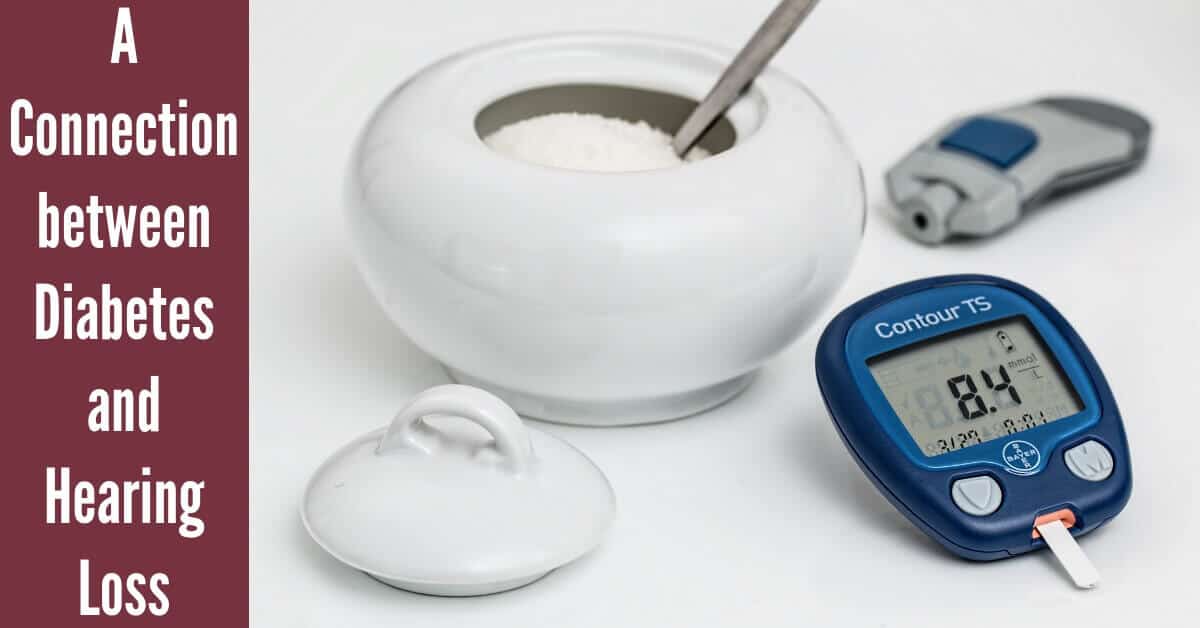
- Signs Your Earwax Buildup Needs Professional Attention - May 29, 2025
- Preparing for a Hearing Test and What You Should Bring - May 16, 2025
- A Step-by-Step Look at How Hearing Aids Make Sounds Sharper - May 5, 2025
Hearing loss has many causes, and you might be familiar with some of them. Everyone knows that exposure to extremely loud noise at work or during leisure activities will damage your hearing, and teens risk hearing loss from listening to music with their headphones on too high a volume, or attending excessively loud music concerts. It’s also common knowledge that hearing often deteriorates as people age. However, there are some causes of hearing loss that might not seem so obvious. For example, smoking and drinking have both been linked to hearing loss. Recently, scientists have been studying the connection between diabetes and hearing loss.
What is Diabetes?
Diabetes is one of the most common chronic illnesses in America, with over 30 million people living with the disease. It’s estimated that another 80 million people have prediabetes, and risk developing diabetes within the next few years. Those with diabetes face higher risks of heart problems, stroke, kidney failure, sleepiness, weight gain, vision problems, and even difficulty focusing on tasks.
Diabetes is a disease that affects your body’s ability to produce insulin. Insulin is vital to your health, and this hormone is responsible for taking the glucose, or sugar, in your blood, and distributing it to the cells of your body so they have the nutrients they need to function. When your body isn’t producing enough glucose, your cells are under nourished, and you have elevated levels of glucose in your blood, usually referred to as high blood sugar levels.
Types of Diabetes
There are two main types of diabetes. In Type 1 diabetes, the pancreas doesn’t produce any insulin. In this autoimmune disease, the immune system actually attacks the cells responsible for producing insulin. If you have Type 1 diabetes, you must take insulin every day, or the cells throughout your body will shut down and die due to lack of nutrients.
Type 2 diabetes is less severe. The pancreas still produces some insulin, but doesn’t make enough of the hormone to nourish all the cells, and blood sugar levels will remain dangerously elevated. Those with Type 2 diabetes can treat their diabetes with diet and exercise programs, and also take insulin every day to stabilize insulin levels.
Diabetes and Hearing Loss
So, what does diabetes have to do with your ears? Researchers report that those with hearing loss are 50% more likely to struggle to hear than those without diabetes. This is due to the sensitivity of the delicate hair cells in the inner ear. These cells pick up on all the sound waves around you, and convert them to electrical signals that are sent to the brain, where you interpret them as sounds. These cells are very susceptible to injury, both from within and without.
Exposure to loud noises can damage these cells, and the force of the sound waves can have severe repercussions to your hearing health. Internally, these cells can be damaged by reduced blood flow, lower levels of blood oxygen, or nutrient deprivation. For those with diabetes, both blood flow and nutrient levels are impacted, and this can cause a lot of cell degradation or death in the ears. Once these cells are damaged or destroyed, they don’t regenerate, and hearing loss will be permanent.
Treating Hearing Loss
If you’ve noticed any changes in your hearing, it’s important to get a hearing test as soon as possible to understand the cause of your hearing loss, and how severe it is. During your hearing test, we’ll ask you questions about your medical health history, so we can get a clear understanding both of your hearing health and overall health. Be sure to tell us about your diabetes. If you have diabetes, you’re more likely to suffer from sensorineural hearing loss, and a quality hearing device is the best treatment option to help you hear all the sounds around you, and restore your quality of life.
At Hearing Aid Specialists of the Central Coast, we’ll work with you to determine your level of hearing loss, and your hearing needs. Whether you’re struggling to hear at the office, don’t feel safe driving, or need help hearing conversations in places with a lot of background noise, we have the perfect device that will have you hearing clearly.
